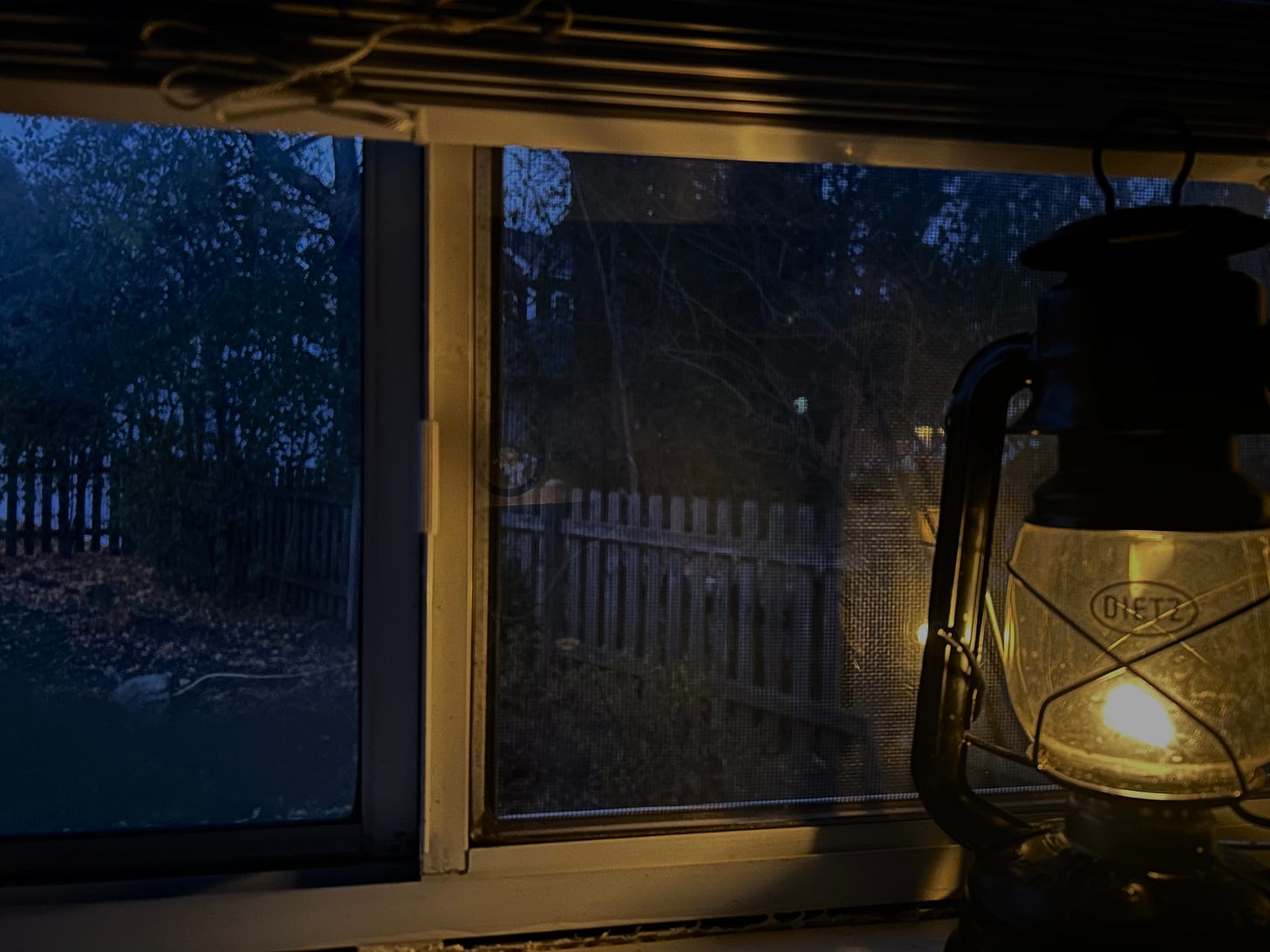The digital thermometer in the kitchen reads 12-degrees outside. And when I step out the door into the frigid early morning air about an hour before sunrise, the world is still. Frozen silent, as if it has been paused.
It was an hour ago that I hit the remote start for the heater in my writing shed, but I know that on a morning like this, warmth will have to wait, and it may require patience before it is truly comfortable inside the shed. Still, I go, hoping I can tolerate the temperature inside now reading 35-degrees. A big sweater and a watchman’s cap will help.
I live in the Midwest. It gets cold and snowy in the winter. It’s inevitable. My childhood was in Pennsylvania where the seasonal temperatures dive below freezing most days. But despite my familiarity, and a somewhat built-up tolerance, I never much liked winter. I tried to accept it in my 20s, skiing regularly in the Allegheny Mountains and ice skating at the local rink several times in a season. Still, in the end, I was never a winter person.
Until now.
Winter, I have come to learn on mornings like this, allows us to see and feel, as artist Andrew Wyeth said, “the bone structure of the landscape—the loneliness of it.” And therein lies the beauty of winter. Trees like skeletons standing in the dimmest light on this early December morning with the moon a delicate sliver, a white crescent eyebrow hanging in the Chelsea blue sky. A melancholy morning, the melancholy of poetry, of song, or a lover’s goodbye. No other season evokes this. And inside the shed now, looking through the window, I realize that Oscar Wilde may have been right: “Wisdom comes with winters.”
It takes a sort of wisdom to know and embrace the season’s loneliness but at the same time not to allow it to bring me down. That kind of loneliness is with me now. Not one of sadness, but one of place and heart. It is not the loneliness of rejection or helplessness. No. This is the loneliness of self-awareness. It is in winter that the exercise of accepting aloneness is fully realized because the season is asleep, dream-like, introspective. There is no other time on our human calendar that permits you to sink into its powers more profoundly than winter.
The sun is not yet up, but ghostly light has now emerged, and across the back fence I can see the fallen leaves of autumn on the hardened ground in their state of nurturing decay. It will take months in the cold for the dead brown leaves to return to the soil. Winter makes that process a slow and methodical one. Not unlike our own nourishment, the kind that comes in winter in a gentle unhurried way. In spring we rush toward summer. In summer we rush to never miss the brightness and warmth. In fall, we take on the work of harvesting ourselves. But in winter, we rest and replenish the soul. It is the season in which we search for self, and in the season’s deadness we find quiet and long nights that allow us to listen to our own beating heart.
There is more light now, but muted, slanted. Brown is emerging everywhere. The tree trunks, the garden beds, the old wooden fence. But there, just beyond the caw of a morning crow, is a pine—green in the season, green forever. In December’s hardened atmosphere, there is wisdom. The pine holds on fiercely to its hue while other plants go dormant or die. It’s a mystery. Why does the pine remain fearsome in the coldest and harshest of days and nights? Does it know more than the others? Is it simply wise? Maybe it has learned to adapt to this lonesome season, taking in the moisture preserved in its needles and their waxy coating to continue life-affirming photosynthesis throughout winter. It has learned to survive. And so, it is evergreen. Like us.
The shed is warming now. There is writing to do. Correspondence to consider. But first, I’ll sit in the silence and recognize my transformation, how my winter is different now, how I am different now, too.
"Many of the phenomena of winter are suggestive of an inexpressible tenderness and fragile delicacy. We are accustomed to hear this king described as a rude and boisterous tyrant; but with the gentleness of a lover he adorns the tresses of summer." — Henry David Thoreau, Walden.
David W. Berner is the author of several books of award-winning fiction and memoir. His latest, Daylight Saving Time: The power of growing older is available now. His novella, American Moon will be published by Regal House Publishing in 2026.





Your deepest essay to-date, in my humble opinion. Thanks for letting us listen to your depth.
Beautiful piece